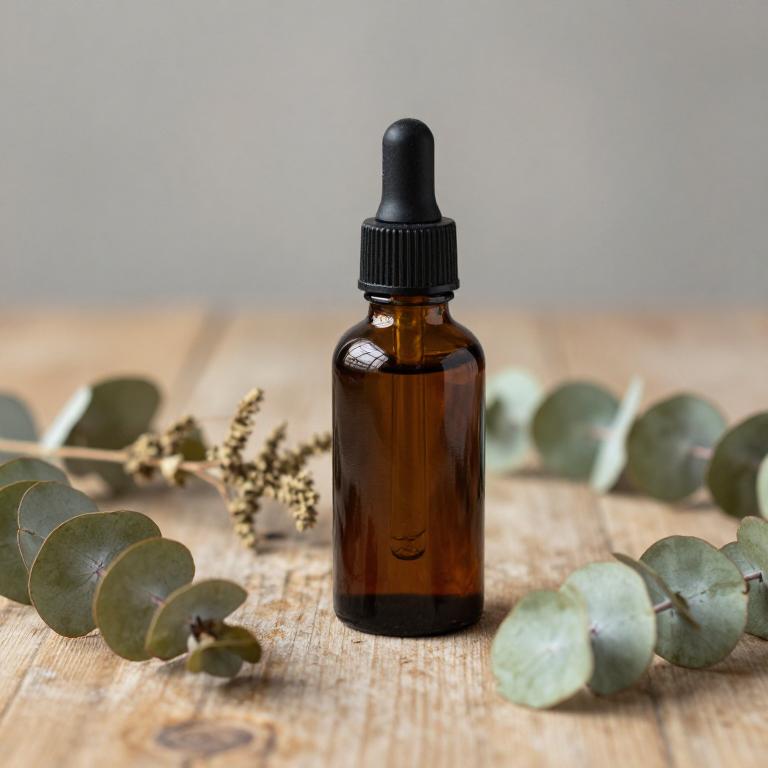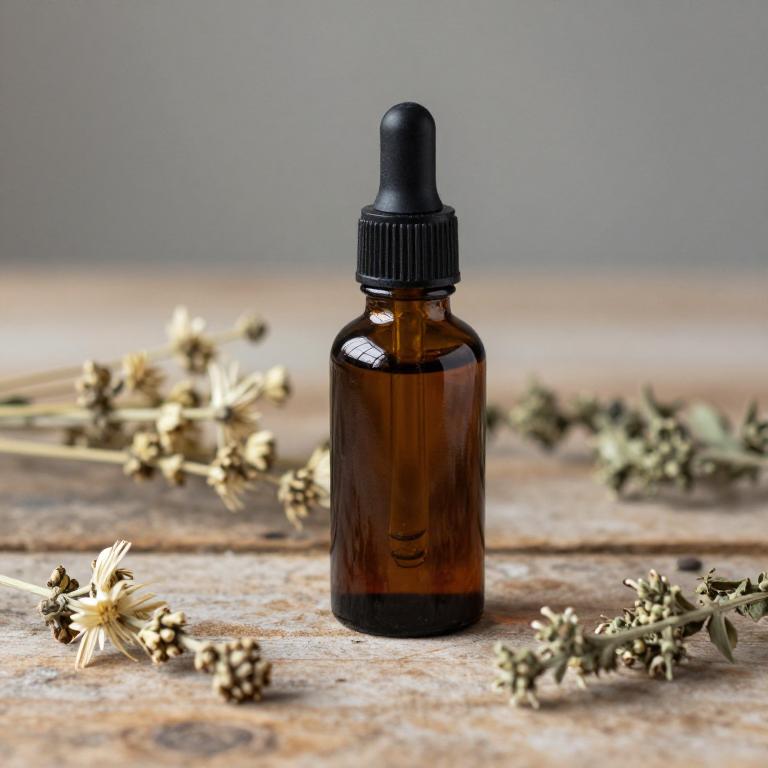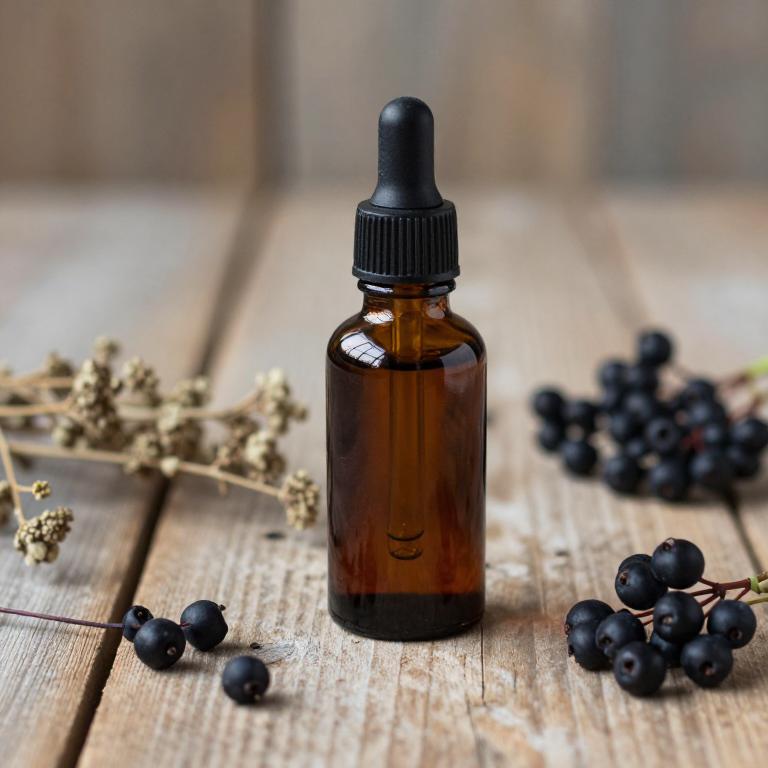10 Best Herbal Tinctures For Post Nasal Drip

Herbal tinctures are concentrated liquid extracts made from plant materials and are often used to alleviate symptoms of postnasal drip, a condition characterized by excessive mucus production and throat irritation.
Common herbs used in these tinctures include echinacea, ginger, licorice root, and mullein, each offering anti-inflammatory, antimicrobial, or soothing properties. These tinctures can be taken orally to help reduce inflammation in the respiratory tract and thin mucus, making it easier to expel. They are typically prepared using alcohol or glycerin as a solvent and can be customized to suit individual needs.
While generally considered safe, it is advisable to consult a healthcare provider before using herbal tinctures, especially for those with existing health conditions or taking other medications.
Table of Contents
- 1. Thyme (Thymus vulgaris)
- 2. Ginger (Zingiber officinale)
- 3. Eucalyptus (Eucalyptus globulus)
- 4. Stinging nettle (Urtica dioica)
- 5. Catnip (Nepeta cataria)
- 6. Black elderberry (Sambucus nigra)
- 7. Peppermint (Mentha piperita)
- 8. Salvia (Salvia officinalis)
- 9. Fennel (Foeniculum vulgare)
- 10. Echinacea (Echinacea purpurea)
1. Thyme (Thymus vulgaris)

Thymus vulgaris, commonly known as thyme, is a popular herb used in herbal tinctures for its potent antimicrobial and anti-inflammatory properties.
These tinctures are often utilized to alleviate symptoms of post nasal drip by reducing mucus production and soothing irritated nasal passages. The essential oils in thyme, particularly thymol, help combat respiratory infections that may contribute to chronic post nasal drip. When used as a complementary therapy, thymus vulgaris tinctures can support immune function and promote clearer breathing.
However, it is important to consult with a healthcare provider before use, especially for individuals with existing medical conditions or those taking other medications.
2. Ginger (Zingiber officinale)

Zingiber officinale, commonly known as ginger, has been traditionally used for its anti-inflammatory and mucolytic properties, making it a popular ingredient in herbal tinctures for post nasal drip.
These tinctures often combine ginger with other herbs like eucalyptus or thyme to enhance their effectiveness in reducing mucus production and soothing irritated nasal passages. The active compounds in ginger, such as gingerol and shogaol, help to reduce inflammation and improve respiratory function, providing relief from congestion and post nasal drip symptoms. When used as a tincture, ginger is typically diluted in alcohol or glycerin to ensure safe and effective application.
While generally considered safe, individuals with allergies to ginger or other ingredients should consult a healthcare provider before use.
3. Eucalyptus (Eucalyptus globulus)

Eucalyptus globulus, commonly known as eucalyptus or gum tree, is a widely used plant in herbal medicine for its potent anti-inflammatory and decongestant properties.
Herbal tinctures made from eucalyptus globulus are often recommended for alleviating symptoms of post nasal drip due to their ability to reduce mucus production and ease nasal congestion. These tinctures contain essential oils such as cineole, which have been shown to have a soothing effect on the respiratory tract. When used as directed, eucalyptus globulus tinctures can provide natural relief for individuals suffering from chronic or occasional post nasal drip.
However, it is important to consult with a healthcare professional before use, especially for those with allergies or underlying health conditions.
4. Stinging nettle (Urtica dioica)

Urtica dioica, commonly known as stinging nettle, has been traditionally used in herbal medicine for its anti-inflammatory and decongestant properties.
When prepared as a tincture, Urtica dioica may help alleviate symptoms of post nasal drip by reducing mucus production and soothing irritated nasal passages. The tincture is typically made by soaking the dried leaves in alcohol for several weeks, allowing the active compounds to be extracted. Some studies suggest that the compounds in stinging nettle, such as histamine and formic acid, may have a mild antihistaminic effect, which could help reduce allergic reactions contributing to post nasal drip.
While generally considered safe, it is advisable to consult a healthcare professional before using Urtica dioica tinctures, especially for individuals with existing health conditions or those taking medications.
5. Catnip (Nepeta cataria)

Nepeta cataria, commonly known as catnip, has been traditionally used in herbal medicine for its potential respiratory benefits, including alleviating symptoms of post nasal drip.
When prepared as a tincture, nepeta cataria may help reduce mucus production and soothe irritated nasal passages due to its mild antispasmodic and decongestant properties. The essential oils in catnip, particularly nepetalactone, are believed to have a calming effect on the respiratory system, which may aid in clearing congestion. While scientific research on its effectiveness for post nasal drip is limited, many individuals report relief from using catnip tinctures as a natural alternative to conventional remedies.
As with any herbal treatment, it is advisable to consult a healthcare professional before use, especially for those with allergies or underlying health conditions.
6. Black elderberry (Sambucus nigra)

Sambucus nigra, commonly known as elderberry, is often used in herbal tinctures to support respiratory health, including alleviating symptoms of post nasal drip.
The tinctures are typically prepared by soaking the dried berries in alcohol, which extracts potent antioxidants and anti-inflammatory compounds. These properties may help reduce mucus production and soothe irritated nasal passages, providing relief from congestion and throat irritation. While some studies suggest potential benefits, more research is needed to confirm its efficacy for post nasal drip.
As with any herbal remedy, it is advisable to consult a healthcare provider before use, especially for those with allergies or chronic conditions.
7. Peppermint (Mentha piperita)

Mentha piperita, commonly known as peppermint, is often used in herbal tinctures to alleviate symptoms of post nasal drip due to its decongestant and anti-inflammatory properties.
The essential oils in peppermint, particularly menthol, help to soothe irritated nasal passages and reduce mucus production, providing relief from congestion. When used as a tincture, peppermint can be diluted with water or alcohol to create a safe and effective remedy for those suffering from chronic post nasal drip. It is often combined with other herbs like eucalyptus or thyme to enhance its therapeutic effects.
However, individuals with asthma or gastrointestinal sensitivities should consult a healthcare provider before using peppermint tinctures.
8. Salvia (Salvia officinalis)

Salvia officinalis, commonly known as sage, has been traditionally used in herbal medicine for its potential respiratory benefits, including alleviating symptoms of post nasal drip.
Sage tinctures are often prepared using alcohol as a solvent to extract the plant's essential oils and active compounds, such as flavonoids and rosmarinic acid, which may help reduce mucus production and inflammation. When used as a nasal spray or diluted in water, sage tinctures can provide a natural alternative for soothing irritated nasal passages and clearing excess mucus. However, it is important to consult with a healthcare provider before using sage tinctures, especially for individuals with allergies or those taking other medications.
While preliminary research suggests sage may support respiratory health, more clinical studies are needed to fully establish its efficacy for post nasal drip.
9. Fennel (Foeniculum vulgare)

Foeniculum vulgare, commonly known as fennel, has been traditionally used in herbal medicine to support respiratory health.
Fennel tinctures are often recommended for alleviating symptoms of post nasal drip due to their expectorant and anti-inflammatory properties. The essential oils in fennel, particularly anethol, help to loosen mucus and reduce congestion in the nasal passages. When taken as a tincture, fennel can be diluted in water or herbal tea to make it more palatable and safe for regular use.
However, it is important to consult with a healthcare provider before using fennel tinctures, especially for prolonged periods or in combination with other medications.
10. Echinacea (Echinacea purpurea)

Echinacea purpurea herbal tinctures are commonly used to support immune function and may help alleviate symptoms of post nasal drip by reducing inflammation and mucus production.
These tinctures are derived from the dried flowers and roots of the purple coneflower, a native North American plant known for its medicinal properties. While scientific evidence on their effectiveness for post nasal drip is limited, many people find relief from frequent throat clearing and congestion when using echinacea tinctures regularly. It is important to consult with a healthcare provider before starting any herbal treatment, especially if you have underlying health conditions or are taking other medications.
Echinacea tinctures are typically taken orally, diluted in water or another liquid, and may be used as part of a holistic approach to managing respiratory symptoms.